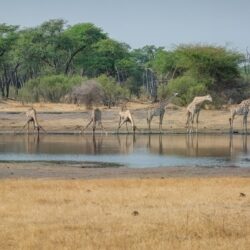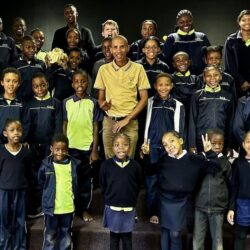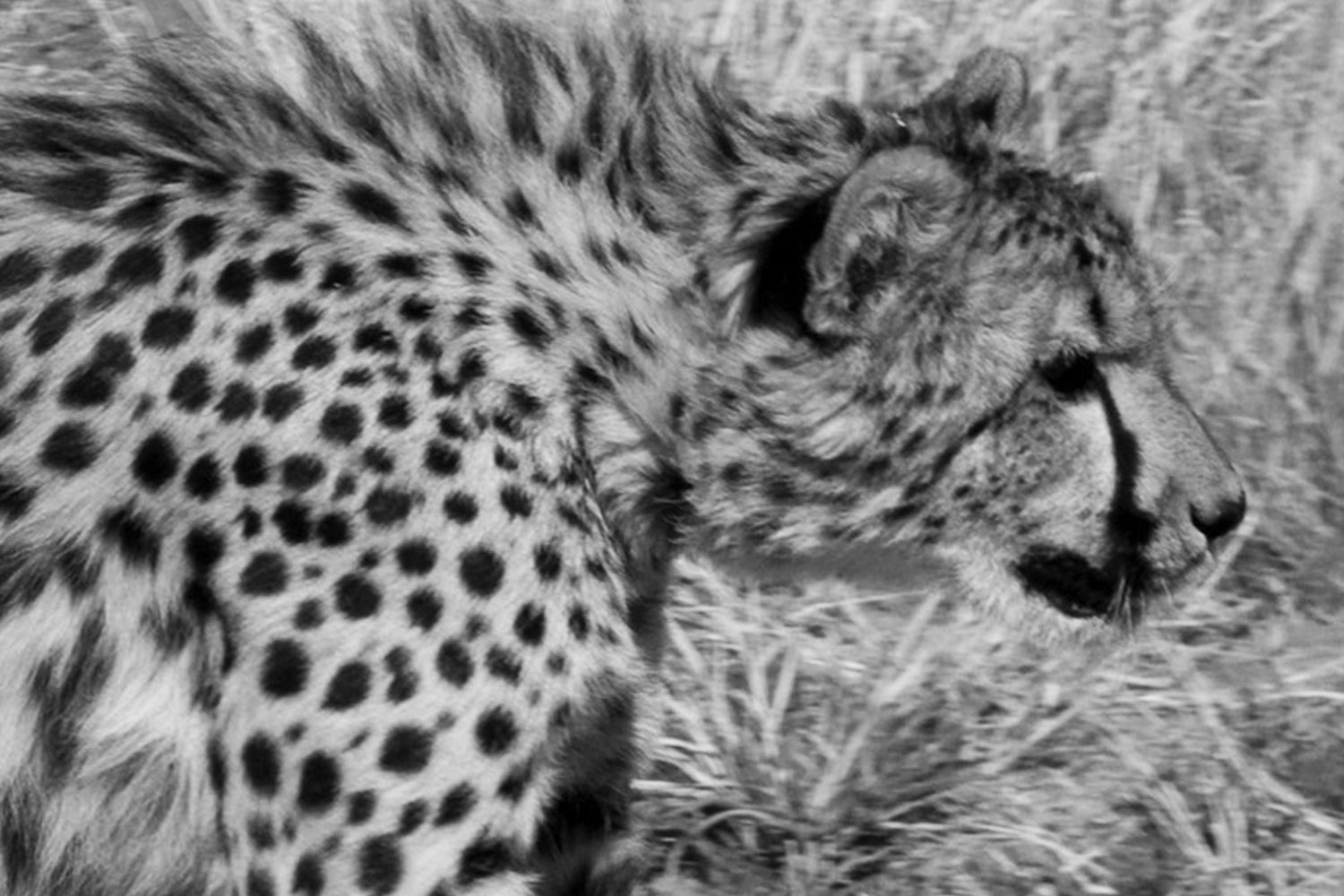Cheetah Diplomacy – A Requirement for Conservation to Succeed
-

- by Meredith Hanel May 21, 2019
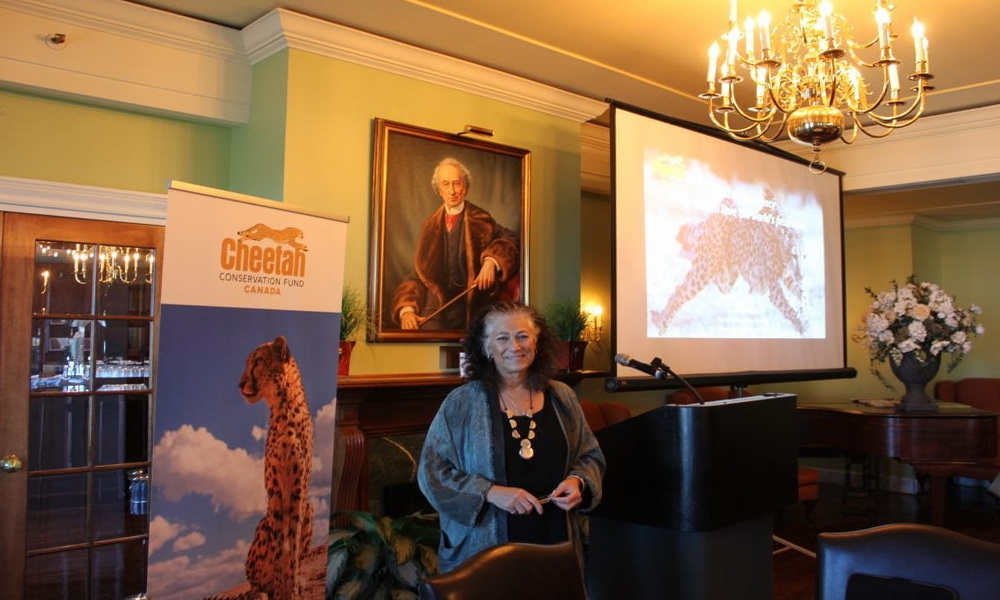
“Saving the cheetah isn’t just about saying, aren’t you pretty and you should live, it’s making a world for the cheetah”, said Dr. Laurie Marker, Founder and Executive Director of the Cheetah Conservation Fund (CCF), as she concluded her talk to a group of lunch guests in Ottawa in April. Marker’s talk highlighted CCF’s use of diplomacy to deal with challenges in cheetah conservation efforts to prevent habitat loss, human wildlife conflict and illegal wildlife trafficking.
There are 31 populations of cheetahs across 23 countries. Going where the cheetahs are to learn about them or to reintroduce them into the wild necessitates many levels of diplomatic relationships from governments to the individual farmers who manage livestock in cheetah territories. In addition to Namibia where CCF is based, the organization has conservation efforts in 14 other countries where cheetahs live. To establish their cheetah conservation programs, Laurie Marker says that she needs to be able to talk to herders and presidents of countries and everyone in between.
Cooperating with farmers
The benefits of diplomacy became evident to Marker early on in her work with CCF. When she first moved to Namibia 1977 she found that farmers, in trying to protect their livestock and livelihoods, were killing 800-900 cheetahs per year. Instead of making farmers the enemy, she recognized an opportunity to collaborate with them to learn more about cheetahs.
“I was able to get the farmer’s hands on the cheetah. That helped switch things right away. These kind of grumpy old guys were all of the sudden weighing the cheetah, feeling its spots, hearing its heartbeat and from that it helped them get involved in cheetah conservation”, says Marker. CCFs work with farmers started the baseline of everything they know about cheetahs today. When rural farmers asked for help from CCF in preventing livestock loss to cheetahs, CCF answered by creating farmer training programs, livestock guarding dogs, and their model farm.
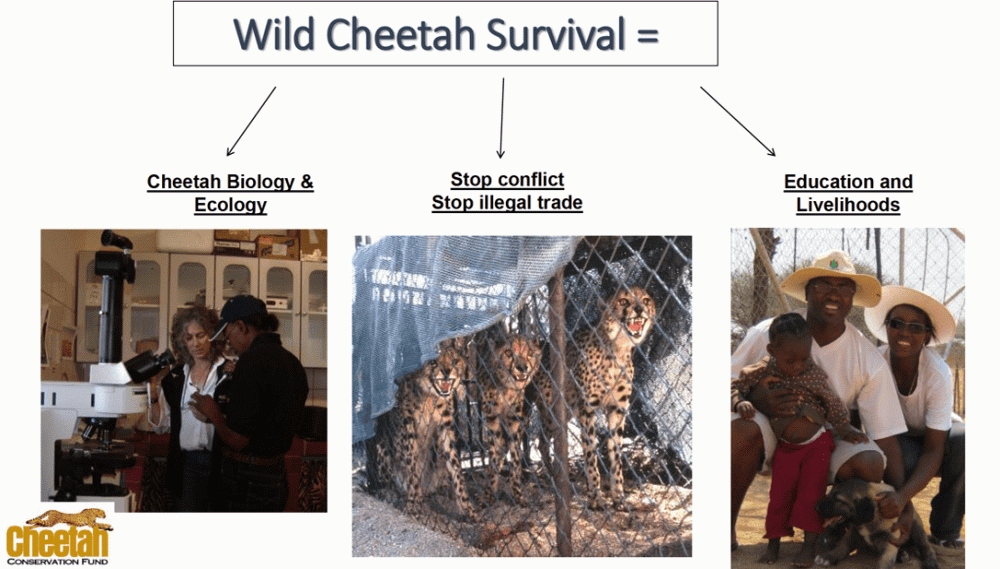
Education and training programs
Protecting the environment is key factor for saving cheetahs. When CCF got started their education programs in Namibia, the country had decided that environmental education was to be cross-curricular. So, CCF developed a cross-curricular teacher’s guide called Cheetahs: A predator’s role in the ecosystem and shared this with the Ministry of Education and began teacher’s training and school outreach programs.
Since 1994, over 550,000 students have participated in their educational programs. CCF also has a number of volunteer and internship programs for University students. Marker explains the impact this has had, “Today many of the people in government politics were our school kids. Many of the people that are running the wildlife department or the agriculture department in were my college interns from Namibia.”
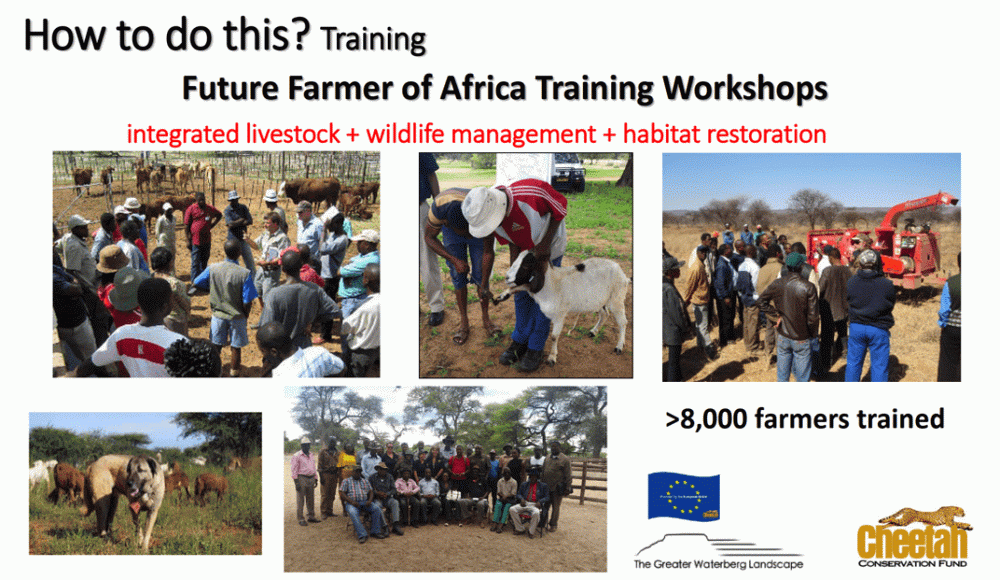
Mutual benefits
CCF institutes changes that are mutually beneficial for the community. The Bushblok initiative creates economic prospects to the communities of Namibia. Bushblok is a fuel log used for cooking or home heating and it is made from harvesting thorn bush. This helps farmers because thorn bush overgrowth makes farmland unusable. Cheetahs can’t run fast through thorn bush. Harvesting of thorn bush helps return the savannah to a the more natural state allowing cheetahs to hunt like they were built to. Through the CCF biomass project thorn bush will be used for the generation of electricity and to bring it to some of the 65% of people in Africa that do not have access.
CCF’s many diplomatic relationships are helping them create the kinds of changes that make the world a better place for cheetahs and people.
References
Biomass Technology Demonstration Centre. (2019, March 08).
BushBlok. About. and Bushblok.
Casey, M. (2018, January 25). Pet Cheetahs Pose With Fancy Cars and Boats on Instagram.
Educational Programs – School Outreach.
Fighting the Illegal Pet Trade.
Intern Story – Cheetah Conservation Fund (CCF) Field Attachment Journey.
Model Farm – Support our Research, Education, and Conservation Programs.
Warrall, S. (2018, December 04). This impoverished region is a hub for the cheetah trade. Now it’s fighting back.
Related Reading
-
November 16, 2024
Cheetah Keepers – All About the Cheetahs! -
October 4, 2024
World Animal Day 2024 -
May 22, 2024
It’s International Day for Biological Diversity!

